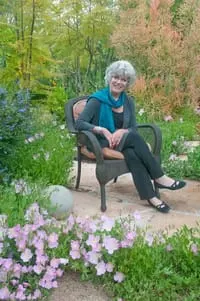
Life gets crowded. Hurried. Complicated. Pressing. Things do not unfold as anticipated.
Life can feel like a “doing-ness” rather than a “being-ness.” It can be about The List. It can morph into a disconnection and distance.
The context of our lives can define our relationships. When we feel stress, rushed or overwhelmed, those feelings spread out, insinuating themselves into our closest relationships with our partners, with our children (young or grown), with our friends.
Our workplace can further cause conflict with schedules, obligations, projects (yes, even the good ones!) and dynamics with co-workers. The chaos from our personal lives will find its way into our work, believe it or not.
So often, creating and maintaining balance can feel like the most daunting of challenges, and we turn away from what we know can offer relief and, yes, balance.
When we lose our focus, when we hurt from present circumstances to unresolved losses of the past, our relationships suffer. And the cycle begins again and again.
Life is difficult, writes M. Scoot Peck, M.D. in The Road Less Traveled.
All of us face difficult times, even some crises, and these ARE difficult times. How we react to these events, and how we think and feel about them can guide us to calmer waters or propel us into stormy seas.
The pressures of life cause stress in relationships (our closest relationships take the biggest hit) that can bring misunderstanding, hurt and fear. And that is where therapy can be a powerful force, an ally.
With over 30 years in working with parents, children and families, Gale Denning-Mailloux, M.A., Licensed Marriage and Family Therapist, offers individual, couple, child and family therapy in a unique garden-setting country retreat, including families challenged by separation, divorce and death.
Since life is difficult, and we face difficult times, we feel stress that can threaten the fabric of our relationships and we want help to find better ways to work through the hurts and pain of yesterday and today.
Using both interactive talk therapy and art therapy (or even “walk therapy” in the garden), we explore together what we learned as we grew up in our families of origin about relationships and how we perceive them – as well as how we learned what we learned. You’ll discover the significant impact this learning and perception has on how you face the realities in the present and how our relationships, all of them, are shaped.
If we learned not to make waves or keep the peace at almost any price, we may have developed an aversion to arguing, disagreements or even any level of perceived conflict, including expressions of anger or even a raised voice. If we learned that we could get attention we needed by engaging in certain behaviors, we could carry this forward into current relationships with very unsatisfactory consequences. This can happen in any family and can occur in greater frequency and intensity where there is/was marital conflict, parental emotional/physical unavailability, substance abuse, physical/emotional/sexual abuse, lack of communication skills and self-soothing capacities.
Most often what brings us to therapy is the suffering we experience when what we are doing is no longer “working,” resulting in increased stress, irritation, depressed mood, anxiety, etc. We may keep doing what we have been doing (not knowing another way) and believing that somehow the outcome will be different. But mostly, we’re no longer effective, which can leave us in places of doubt, confusion, anger and hurt.
Facing ourselves can be really hard. Frequently, we can tell ourselves that if our partner (or child, or friend or co-worker, etc.) would just change and see the error of their ways, all would be well in our world. You may even have heard or said, “ I’m upset only because you’re upset – not that anything is a problem. It’s a problem because you’re upset- so just fix it (or let me do it for you) and the problem disappears.”
No muss. No fuss. No personal accountability. How do you talk with someone, especially someone close to you, when neither of you knows how to listen? When we listen, really listen (not forming your rebuttal, or interrupting, or “defending” yourself) and are curious, have empathy (the ability to put yourself in someone else’s shoes), leaving criticism and judgment at the door, AMAZING things can happen.
We want to be seen and heard, yet rarely have we truly learned how to listen.
Stress can bring out the best and the worst in us. We feel afraid of what might happen, what we might lose or have taken from us. Usually fear finds a home in us when we feel worried, tired and overwhelmed.
During such times, we may not be able to grasp that an opportunity to become more of whom we want to be is offered. It takes courage to look at ourselves.
Back to therapy being that powerful force, that ally: to be able to sort out, explore, investigate; to acquire the skills which bring out who we aspire to be, to feel better, to have more connection to those around us, to be seen and heard, to be challenged in our ways of thinking, feeling, behaving. And not to have to do it alone. Now, that’s a powerful force. An ally.
Come to the garden. I look forward to working with you.
Bonsall Counseling , a unique garden-setting country retreat, is also a Designated Wildlife Habitat, and offers a quiet and serene atmosphere and a garden with a mind of its own, winding paths, hidden benches, small ponds with tadpoles and frogs, scores of species of birds, scampering little lizards and treasures to find.
I invite my clients to arrive early or stay later to sit in the garden, journal, absorb what they take from their session.